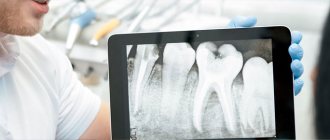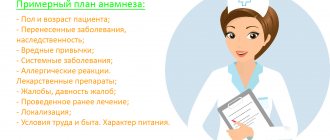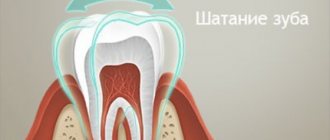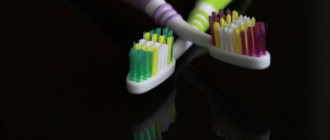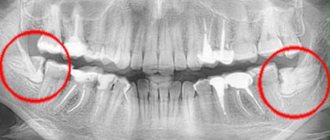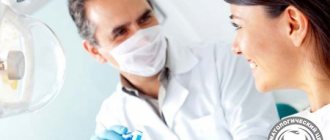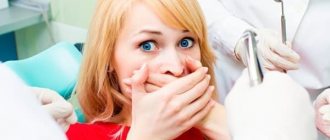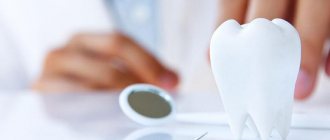A visit to the dentist is an exciting event. To make your meeting with your doctor enjoyable and productive for both, it is useful to familiarize yourself with simple tips. It is not difficult to follow them, and the result will be a good mood and well-being.
So, first of all, you need to allocate quality time for the visit. It is better to choose a day off or a day when you do not need to immediately return to work or other active activities. This will help avoid possible inconvenience caused by pain relief.
It won't hurt
First of all, you must take a deep breath and remember one immutable truth - the principle of “be patient for a while” is no longer acceptable in dentistry! Modern dentistry guarantees no pain during dental treatment! We guarantee this at Yulistom too.
Modern dental offices no longer look as intimidating as before.
Modern dental office at Polikarpova Alleya, 4k1 (St. Petersburg)
Read more at the link:
https://ulistom.ru/vozmozhno-li-lechenie-zubov-bez-boli/
In the modern world, it is no longer fashionable to be afraid of dentists! Or as the hero of one joke said, you need to be afraid not of dentists, but of the amount that will be announced for treatment! In any case, it won’t hurt, feel free to go to the dentist!
What oral diseases does the dentist treat?
People turn to a dentist to treat diseases of all structures of the dental system - teeth and surrounding tissues, oral mucosa, pathologies of the jaws, salivary glands, tongue and lips, and the temporomandibular joint. Various pathologies can affect any part of the dental system.
- Pathological changes in tooth enamel (hypoplasia, fluorosis, wedge-shaped defect, formation of erosions, etc.). Disorders may be congenital or acquired. The pathology is expressed in the appearance of dark spots, irregularities, cracks, chips and is accompanied by increased sensitivity of the teeth.
- Increased abrasion is an intensive reduction of hard tissues, leading to almost complete wear of the crown part of the tooth.
- Hard tissue necrosis is damage to enamel and dentin, which causes the formation of defects on the surface of the teeth.
- Increased tooth sensitivity, which is expressed by pain or discomfort when eating cold, hot, sweet or sour foods.
- Various injuries of teeth, maxillofacial skeleton, jaw joints.
- Dental caries is demineralization and destruction of hard tissues with the formation of a cavity inside the tooth.
- Gingivitis is an inflammatory process in the gum tissue, accompanied by redness, pain and swelling.
- Pulpitis is an inflammation of the connective tissue that affects the dental nerves and blood vessels. Characteristic symptoms are acute throbbing pain, swelling and redness of the gums.
- Periodontitis is an inflammation of the tissues directly adjacent to the teeth. May lead to bone destruction. Characteristic symptoms are swelling, redness, pain when pressing.
- Stomatitis is an inflammatory process that occurs in the oral mucosa. The pathology is expressed in redness, swelling of the mucous membrane (catarrhal stomatitis), the appearance of plaque, blisters and erosions (aphthous stomatitis), ulcers (ulcerative stomatitis) in the oral cavity, pain and burning when eating.
- Periodontitis is an inflammation of the dental tissues (periodontal tissue), leading to the destruction of the root ligament with the bone tissue of the jaw and subsequent tooth loss.
- Glossitis is an inflammatory process in the tissues of the tongue, accompanied by changes in its size, structure and color. The disease is characterized by burning, swelling, redness of the tongue, severe salivation, loss of taste, pain when chewing, swallowing food, and difficulty speaking.
- Cheilitis is an inflammation of the lips at the border of their closure of various origins.
- Pathologies of the maxillofacial joint (ankylosis, arthritis, dislocation) in which its mobility is impaired, facial asymmetry and sharp pain appear with any movement.
- Flux is an inflammation of the periosteum that occurs as a complication of caries.
- Malocclusions – deep, overlapping or crossbite, prognathia, progenia, etc.
- Absence of teeth or their incorrect position in the dentition.
Plan your hike in advance
It is best if you plan a trip to the dentist in advance on the appointed day and time. This way you can prepare yourself in advance. Thanks to modern communications, you can make an appointment with a dentist via the Internet (as is practiced in the YuliSTOM network of dental clinics).
Read more at the link:
https://ulistom.ru/zayavka-na-priem/
When planning a visit to the dentist, try to schedule an appointment in the first half of the day! Your nervous system is balanced in the morning, and your body is full of strength. Naturally, by the evening the dentist will also be tired, so the best time to visit him is when you are both active and alert.
- home
- For the patient
- Recommendations
- What you need to know before visiting the dentist
What you need to know before visiting the dentist
Every person should visit the dentist from time to time. Even if you think your teeth are perfect, there is no guarantee that no problems will be found during the examination.
Don't plan too far ahead, but choose a day when you can definitely see the doctor. If the case is advanced and you are suffering from acute pain, the doctor will see you without waiting. In addition, you need to go as soon as the tooth begins to hurt badly: delay can lead to complications.
What should you think about when visiting the dentist for the first time?
- Arrive early, about fifteen minutes before your appointment starts. You will need to get a card at the clinic and fill out a health questionnaire.
- Avoid visiting if you suffer from an acute viral or bacterial disease of the throat and respiratory tract (sore throat, laryngitis, pharyngitis). Stay home, even if you don't have a fever.
- Even a slight runny nose is a reason to postpone the examination. Otherwise it will be harder to breathe. Frequent breathing through the mouth contributes to increased humidity, which can affect the quality of the filling that is installed on the damaged tooth.
- If you suffer from chronic diseases (diabetes, asthma), take with you everything that helps you during an attack. The dentist always has a first aid kit, but you know best which drug will most likely help you.
The appearance of herpetic stomatitis is a contraindication for visiting the dentist. Because of it, rashes appear on the mucous membranes, lips and skin, and this will seriously interfere, so first of all, visit a specialist who will help get rid of herpes.
Unless you have a good reason, do not miss or reschedule your dental appointment. If you change the date of your visit, three people will suffer from this:
- you yourself, since the disease will continue to develop and you will not get better,
- your dentist, since he was ready for your appointment and had already planned it,
- that person who wanted to take your time by appointment, but couldn’t.
Visiting the dentist requires a responsible attitude.
The day before your appointment, do not drink alcohol - this reduces the effectiveness of painkillers - and especially do not drink immediately before visiting the office. Alcohol stays in the blood for 2-3 days. Also, do not smoke under any circumstances. But it’s worth having a hearty snack: you may have to go without food for another couple of hours after your visit to the doctor.
When planning to have lunch before going to the dentist, do not eat fish, onions and garlic. There is nothing fatal about this, but think about your specialist: he is unlikely to be pleased. Also be sure to brush your teeth properly using a brush and floss.
Treatment is preceded by a survey, so it is better to think through the main answers in advance. Think about whether you have had surgery, whether you have had serious illnesses, or whether you are currently taking any medications. Thanks to your answers, the doctor will select the appropriate medications.
If you have recently had tests, medical examinations, or still have pictures, take all the results with you.
After treatment, be sure to ask which brush you need to buy, which paste will suit you best. The moment is right: the specialist has carefully studied your oral cavity, so he knows what condition it is in and what care it needs.
We hope these tips will help make your visit to the dentist enjoyable and painless. Be healthy!
Is it possible to be capricious?
In the dental chair, the patient may be capricious, feeling uncomfortable in front of the unknown (he does not know in advance whether it will hurt him and how much). The attending physician, naturally, is prepared for such a turn of events and will allow you to be capricious (if we are talking about private dental clinics) for some time to calm down. But in the end, you must have self-control and carefully follow all the instructions of the attending physician (both during and after dental surgery).
By following these simple recommendations, your trip to the dentist will be easy, painless and productive!
Moscow metro station Zvezdnaya, Danube Avenue, 23
What to do if you are going to the dentist
- eat 2 hours before your appointment (after anesthesia and any dental procedure, you should not eat for 1-2 hours);
- brush your teeth thoroughly (in addition to brushing and toothpaste, use dental floss and mouthwash);
- Prepare a clean handkerchief or a package of napkins.
To choose the right painkiller, the doctor asks a number of questions: does the patient have allergies, asthma, or suffer from serious illnesses. It will be good if you prepare the answers to these questions in advance. You should not risk letting your doctor down - conduct an examination, study your medical record, or ask your parents about diseases suffered in childhood. Without knowing whether your health is in order, you cannot be sure that the anesthesia was chosen correctly and there will be no consequences. Don't forget to also mention the medications you are taking. It is very important!
To make dental treatment comfortable and painless, teeth should be treated under sedation. Drug sedation helps you calm down and relax. It is safe for the body of both adults and children. The patient does not feel pain or discomfort at all, regardless of the procedure: be it caries treatment, tooth extraction or pin implantation. They practice dental treatment under sedation at the Minsk Family Dentistry Center “Medexpert”. For many years, the clinic’s specialists have been treating teeth in their sleep and helping patients achieve a beautiful and healthy smile.
Don't frighten children with your fears
We all come from childhood. And most of us have strong fears associated with dental treatment in our memories. Don't dump your own emotions on your children. A child of 2-2.5 years old sees and experiences the world through the prism of his parents. That’s why it’s so important not to infect your baby with your fears.
You will definitely share your emotions with your child and talk about the adventures that happened to you in the dentist’s office. Just wait until he grows up. Before this, parents face another important task - to make their child fall in love with the doctor. It will be good if the child feels your own trust. It's great if you can find a doctor who will monitor both you and your children. The child will see that his children's doctor is treating you too. Our clinic has such a practice with family dentists. We monitor not only the dental health of children, but also their parents.
How does a dentist help fight dental phobia?
For a dentist, dental phobia is a problem no less serious than for a patient: it interferes with effective treatment and prevents proper dental care. A good doctor will assess the severity of the phobia in advance and will make every effort to help the person cope with the fear. Dentistry itself is now developing along this path: patients are offered comfortable treatment methods that reduce not only pain, but also the level of stress. For this use:
- relaxing soundtrack. This could be soft, calm music or sounds of nature;
- distraction: the ability to watch TV, films during the reception;
- methods of psychological work with the patient. Sometimes a smile, light conversation or reassurance is enough to immediately reduce the level of fear. In other cases, the patient may be reassured if the doctor tells him exactly what he is doing or how much time is left until the end of the procedure.
Treatment can be adjusted to simply remove the most frightening aspects. If a person is afraid of the sound of a drill, chemical or ultrasonic methods, or simply “quieter” equipment, can be used to prepare teeth. If the phobia is associated with the smell of drugs, they select drugs that lack it or prepare them at a distance from the patient so that he does not feel them. You can almost always find an acceptable treatment option. The main thing is to contact your doctor and try to stop being afraid of the dentist.
To encourage or not: is it worth promising rewards after admission?
The issue of gifts for good behavior is controversial. Many psychologists advise avoiding such motivation, fearing future manipulations on the part of the child. However, there are two rules that will allow you to provide a positive reinforcement of experience and at the same time exclude a negative algorithm:
- Intangible reward. A visit to attractions, an interesting movie, or a relaxation in the routine will appeal to anyone and will leave positive emotions, enhancing the good impressions of a dental appointment or removing the negativity of a negative experience.
- Random present. Of course, a surprise will be planned, but the children don’t need to know about it. An unexpected trip to the cinema, buying a desired toy or book will lift your spirits and give you a boost of positivity.
The reward after a preventive examination or treatment is the decision of the parents. But dental clinic staff often hand out small gifts, certificates or memorable stickers to young patients, leaving a friendly reminder of the meeting.
State of health on the day of the dental clinic visit.
Let's move on to the most important points that you should know before visiting the dentist.
If you feel slightly unwell, have a slight cold, have a stuffy nose, have the flu, have an acute respiratory viral infection or herpes has “popped up”, you should reschedule your appointment until you are completely recovered. Dental intervention is also contraindicated for women during their menstrual periods. Here we note the importance of informing the doctor about the fact of pregnancy and breastfeeding.
At the appointment itself, the doctor will definitely ask you about allergic reactions to certain drugs, as well as what medications you are currently taking, so be prepared for these questions, because this will determine the dentist’s next steps.
Adaptation technique is the best preparation for a child
Unfortunately, the good intentions of adults to prepare a child for a visit to the dentist often end in failure. The random mention of words such as “pain”, “drill”, “prick” and the like terrify the child, depriving him of the ability to perceive constructive information. Also, many parents forget that the particle “not” is poorly perceived by children, so “it doesn’t hurt” and “it’s not scary”, kids hear exactly the opposite.
An alternative to unsuccessful dialogues is a professional approach. At an adaptation appointment - one or several - children will have a fun and educational experience in the dental world and learn the most interesting and kind things about it. Kids will no longer be afraid of dentists, schoolchildren will appreciate the friendly approach, and teenagers will gain confidence. The result of the meetings will be a positive perception of dentistry and a complete cure for dental phobia!
